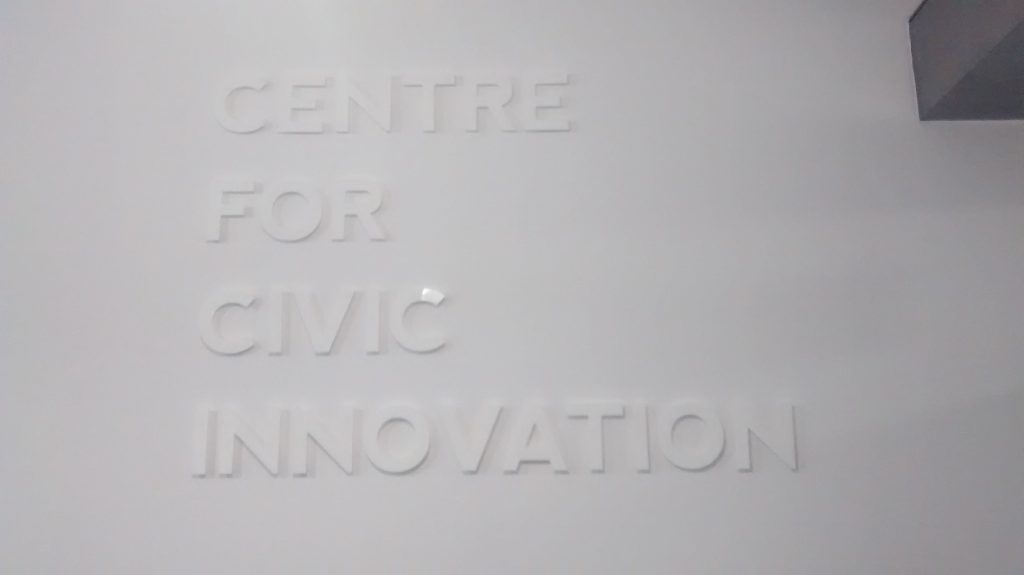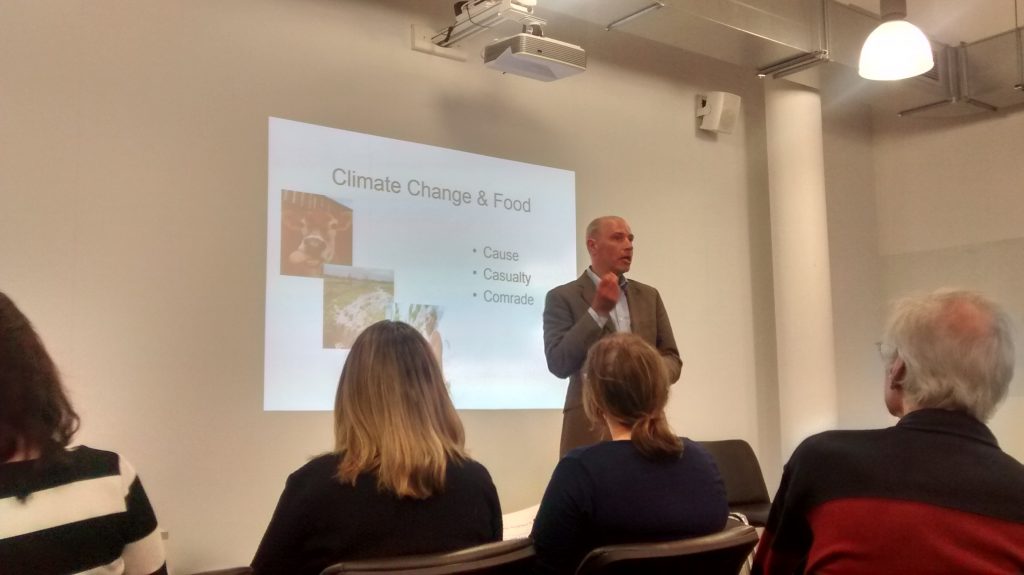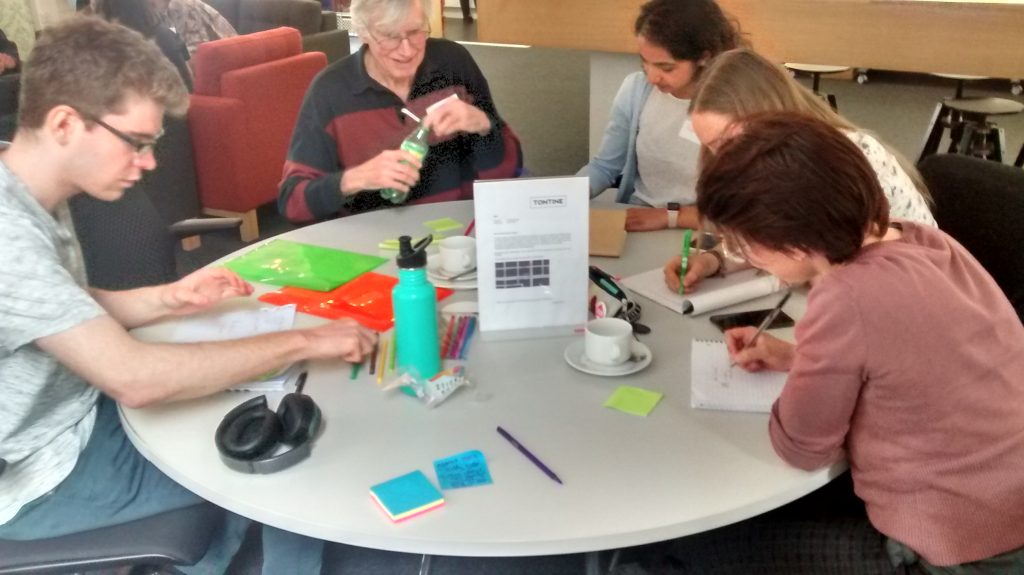Last Friday I found myself here:

The Centre for Civic Innovation in Glasgow.
Why? I was attending my first climathon, which for anyone who doesn’t know (like me, before I went to one) is basically a marathon of brainstorming ideas to tackle climate change, developing these and then pitching them as a (semi) final product.
This particular climathon was organised by Glasgow City Council and the 2050 Climate Group, a youth-led charity that aims to empower young people to act on climate change, in order to generate ideas for a more sustainable food system in Glasgow. Having volunteered at Abundant Borders/Open Space’s community garden in Eyemouth, I was interested to see if any of the challenges and opportunities in Glasgow’s urban food system applied to our more rural setting.
So, after the free (vegan) breakfast, I and the other participants settled down to get a bit of background from speakers on city planning, local food growing, and the impact of food on climate change. We heard from staff at Glasgow City Council about their plans to map local food production in the city, as well as their ambitions to make best use of all the city’s open space- green, blue and grey.

One of the points that really struck me from the morning talks was the huge amount of food we throw away in UK households, something which was even harder to hear after Professor Dave Reay from the University of Edinburgh talked us through the climate footprint of some common breakfast staples- a glass of orange juice, toast, a cup of tea. I have to admit, I’d never thought much about where my orange juice comes from (most likely Brazil, as it turns out)- never mind the fact that the cheap and cheerful stuff from concentrate actually has a lower carbon footprint. That’s because, instead of shipping all that excess water across the ocean, you take it out of the juice in Brazil, ship the concentrate and then put it all back in once the juice gets to Europe. Still- that’s a lot of effort to go to for that sweet citrus start to a morning.
Another point that really struck a chord with me, was made by Councillor Anna Richardson. She pointed out that a whole lot of children in Glasgow already have a very low carbon footprint, because they don’t eat breakfast at all. It was a really important reminder that developing a sustainable food system isn’t really about the climate, it’s about people- making sure everybody can access good food- healthy, affordable, culturally appropriate food- now and in the future.
Of course, to do that, we need to develop a food system that’s resilient to, and mitigates against climate change, as well as a lot of other environmental problems associated with food production, because at the minute, 1) our food system (how we produce, process, package, transport, consume and waste food) contributes to climate change, and 2) climate change impacts on our food system- whether that’s through heat waves damaging crop yields or changing climates enabling pests to spread to new regions.
So how do we actually develop a sustainable food system?
That was really the question that brought us all there. We’ve got the why, we need the how, so, after getting that bit of background knowledge, we split into groups, brainstormed ideas, decided what particular problems we wanted to focus on and, with breaks for yoga and a wee guided walk for some fresh air, developed these into final proposals to pitch to a team of judges from the food industry, 2050 Climate Group and Glasgow City Council.

Ideas included translating the planetary health diet (https://www.thelancet.com/commissions/EAT) into a New Glasgow Diet, turning supermarkets into hubs for community engagement with the wider food system and developing contaminated brown field sites in the city into aquaponic farms, but the two front runners were teams More than Tatties, and the Food Bus. Close runners up, More than Tatties aimed to address issues with limited/seasonal supply from small-scale local producers through software that allowed restaurants and individuals to order whatever food they needed, automatically filling the order with local suppliers where possible and topping up from other sources when necessary. The winner though was the Food Bus- the vision for a bus that travelled around all the communities in Glasgow, stocked with food from local sustainable producers, cooked by chefs and young people training for careers in the food industry, where, whilst enjoying a meal, members of the public could learn more about where the food they were eating came from, who grew it, why it’s in season and how that’s got anything to do with climate change.
I can’t say we solved every problem with the food system in one day but being able to take some time to really explore such an important issue, and have the council there, listening for ideas they could take forward, was a really empowering experience. Even in one day, there wasn’t enough time to explore all the ideas that had potential- even deciding on one problem to address was hard for my group. It really highlighted to me the potential for change that’s out there, and the need for events like this that bring everybody- the public, policy makers and industry-together to find solutions. Maybe we can have one in the borders soon!
Josie- Abundant Borders Volunteer

